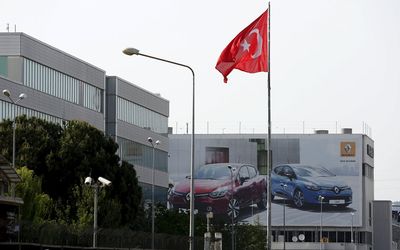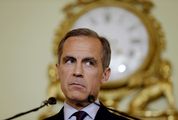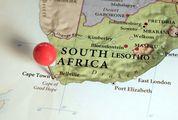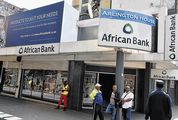Turkey’s travel industry troubles continue
by Isobel Finkel and Constantine Courcoulas
2016-06-30 11:55:25.0
ISTANBUL — The worst may not be over for Turkey’s troubled tourism industry.
The deadly bombings that struck late on Tuesday could derail improvements that had been expected to follow President Recep Tayyip Erdogan’s efforts to mend relations with Russia and Israel. At least 41 people died and more than 200 were wounded.
Attacks attributed to Islamic State, blamed for Tuesday’s bombings, and Kurdish groups have struck major Turkish cities this year, damaging an industry that employs 8% of the workforce and owes $17bn to banks. Here’s the story of a difficult year for Turkish tourism:
Data published on the morning of the attacks already signaled a grim outlook. Tourist arrivals not only fell in May for a record 10th month, but as hotels and resorts entered peak season, the slump deepened. Arrivals plunged 35% from the same month of 2015, after a 28% annual drop in April.
The industry is headed for a 35%–40% drop in income in 2016, Association of Turkish Travel Agencies president Basaran Ulusoy said by phone. "We’ve got to nurse our wounds this year and look ahead to 2017," he said.
Aviation stocks reflect how the Istanbul bombings sunk optimism that Erdogan’s diplomatic forays to end a six-year rift with Israel and a more recent standoff with Russia would fill hotel rooms.
Russia used to send the second-largest contingent of foreign visitors to Turkey, after Germany. But traffic tailed off after Turkey shot down a Russian fighter jet in November and President Vladimir Putin ordered economic sanctions in punishment, including a ban on charter flights. The latest data show Russian visitors plunged an annual 92% in May.
Airline shares surged on Monday as Erdogan extended an olive branch to his Russian counterpart but those gains were eroded on Wednesday, extending Turkish airlines stocks’ year-to-date losses to 21%. Russia today said it plans to lift its curbs on tourism to Turkey and vowed to resume co-operation.
None of this bodes well for one of Turkey’s biggest weaknesses: its current-account deficit. While the shortfall has narrowed since 2011, largely due to the slump in energy prices, the economy still relies heavily on foreign cash to finance growth at home, leaving it vulnerable to swings in investor sentiment. Economists surveyed by Bloomberg expect the deficit to start widening again this year, climbing back to 5.1% of gross domestic product by 2018. Losses from tourism income will at least double in the summer months, according to Deniz Invest chief economist Ozlem Derici, in Istanbul.
Bloomberg

A Turkish flag flies at Oyak Renault car plant in Bursa, Turkey. Picture: REUTERS
ISTANBUL — The worst may not be over for Turkey’s troubled tourism industry.
The deadly bombings that struck late on Tuesday could derail improvements that had been expected to follow President Recep Tayyip Erdogan’s efforts to mend relations with Russia and Israel. At least 41 people died and more than 200 were wounded.
Attacks attributed to Islamic State, blamed for Tuesday’s bombings, and Kurdish groups have struck major Turkish cities this year, damaging an industry that employs 8% of the workforce and owes $17bn to banks. Here’s the story of a difficult year for Turkish tourism:
Data published on the morning of the attacks already signaled a grim outlook. Tourist arrivals not only fell in May for a record 10th month, but as hotels and resorts entered peak season, the slump deepened. Arrivals plunged 35% from the same month of 2015, after a 28% annual drop in April.
The industry is headed for a 35%–40% drop in income in 2016, Association of Turkish Travel Agencies president Basaran Ulusoy said by phone. "We’ve got to nurse our wounds this year and look ahead to 2017," he said.
Aviation stocks reflect how the Istanbul bombings sunk optimism that Erdogan’s diplomatic forays to end a six-year rift with Israel and a more recent standoff with Russia would fill hotel rooms.
Russia used to send the second-largest contingent of foreign visitors to Turkey, after Germany. But traffic tailed off after Turkey shot down a Russian fighter jet in November and President Vladimir Putin ordered economic sanctions in punishment, including a ban on charter flights. The latest data show Russian visitors plunged an annual 92% in May.
Airline shares surged on Monday as Erdogan extended an olive branch to his Russian counterpart but those gains were eroded on Wednesday, extending Turkish airlines stocks’ year-to-date losses to 21%. Russia today said it plans to lift its curbs on tourism to Turkey and vowed to resume co-operation.
None of this bodes well for one of Turkey’s biggest weaknesses: its current-account deficit. While the shortfall has narrowed since 2011, largely due to the slump in energy prices, the economy still relies heavily on foreign cash to finance growth at home, leaving it vulnerable to swings in investor sentiment. Economists surveyed by Bloomberg expect the deficit to start widening again this year, climbing back to 5.1% of gross domestic product by 2018. Losses from tourism income will at least double in the summer months, according to Deniz Invest chief economist Ozlem Derici, in Istanbul.
Bloomberg




















